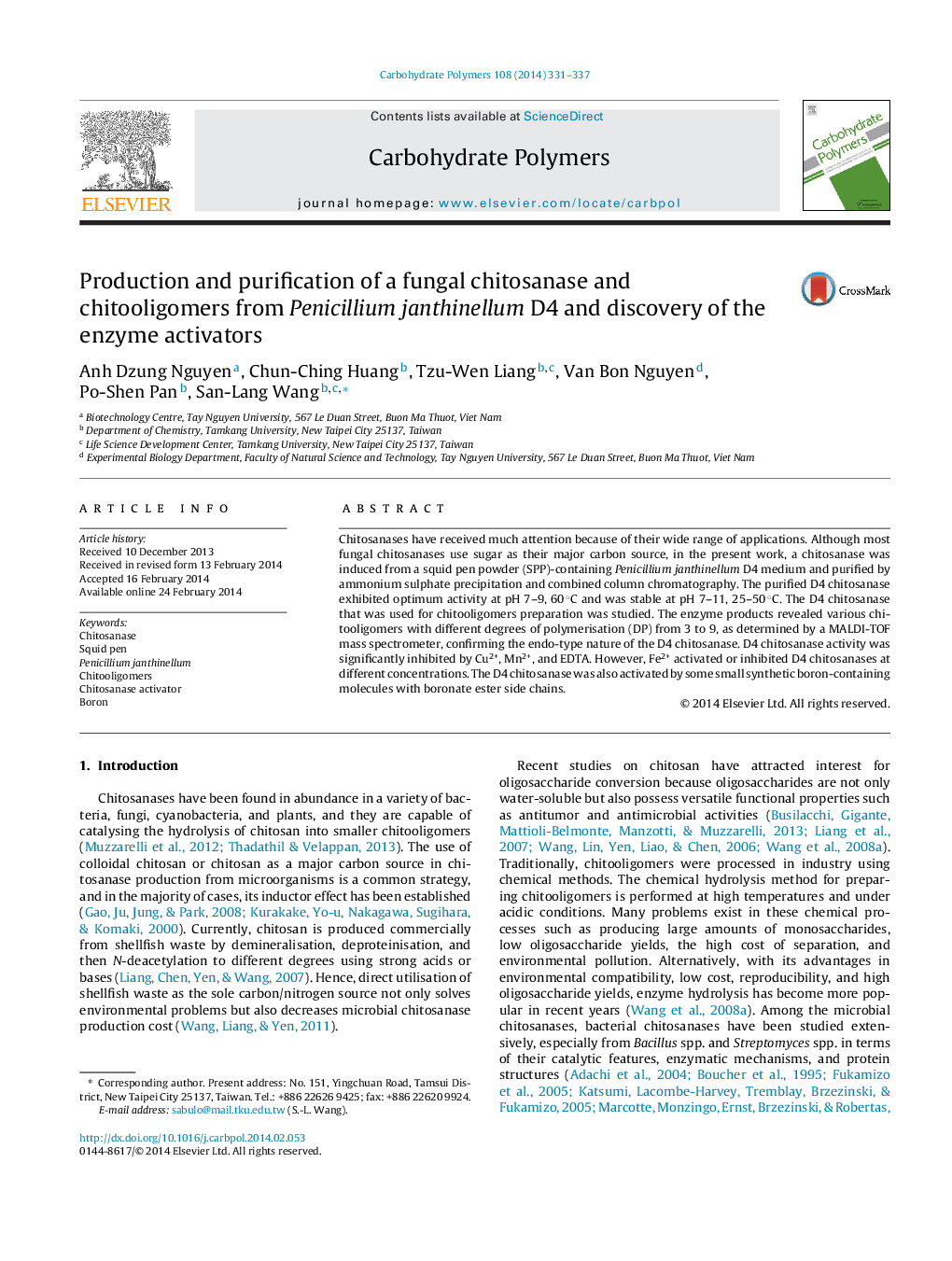| Article ID | Journal | Published Year | Pages | File Type |
|---|---|---|---|---|
| 1375529 | Carbohydrate Polymers | 2014 | 7 Pages |
•This research aimed for the microbial reclamation of squid pen wastes.•Purified and characterised a chitosanase, induced by SPP from Penicillium janthinellum D4.•Discovered some synthetic small boron-containing molecules as chitosanase activators.•The chitosan was depolymerized by D4 chitosanase.
Chitosanases have received much attention because of their wide range of applications. Although most fungal chitosanases use sugar as their major carbon source, in the present work, a chitosanase was induced from a squid pen powder (SPP)-containing Penicillium janthinellum D4 medium and purified by ammonium sulphate precipitation and combined column chromatography. The purified D4 chitosanase exhibited optimum activity at pH 7–9, 60 °C and was stable at pH 7–11, 25–50 °C. The D4 chitosanase that was used for chitooligomers preparation was studied. The enzyme products revealed various chitooligomers with different degrees of polymerisation (DP) from 3 to 9, as determined by a MALDI-TOF mass spectrometer, confirming the endo-type nature of the D4 chitosanase. D4 chitosanase activity was significantly inhibited by Cu2+, Mn2+, and EDTA. However, Fe2+ activated or inhibited D4 chitosanases at different concentrations. The D4 chitosanase was also activated by some small synthetic boron-containing molecules with boronate ester side chains.
